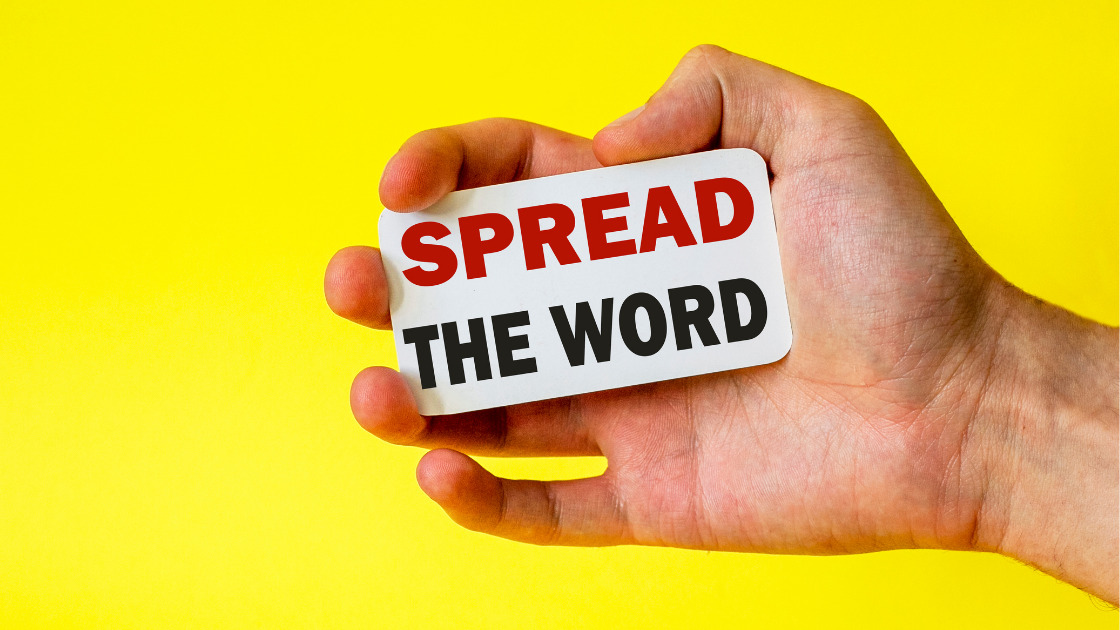It’s not only about getting people to talk about your brand when it comes to word of mouth strategies for marketing. It all comes down to converting your customer into a loyal fan.
Take, for example, Taylor Swift. She didn’t develop her kingdom by having a single person buy her music. No way. Her enterprise was built on the foundation of connections. Her hardcore followers are periodically sent flowers, presents, or invitations to special events.
While her marketing plan is ingenious in and of itself, it would never have worked unless she had built up a dedicated fan base.
So, if you want to understand how to get people talking about your business to the point of obsession, this article will teach you everything you need to know about word of mouth marketing. This covers information on what word of mouth marketing is, how important it is, the benefits, and word of mouth marketing tactics, among other things.
What Is Word Of Mouth Marketing?
Word of mouth marketing is a type of advertising that relies on satisfied or happy consumers and fans to organically promote a brand. Images, video, vlogs, and other forms of media can be used to do this. Word of mouth marketing is an excellent technique to promote your product since folks who write organic content about it are really interested in it.
Offering a high-quality product that is easy to capture and explain can sell itself through your consumers, as this sort of promotion is free and can result in increased sales without your employees having to do anything.
What Is Word Of Mouth Marketing VS Advertising?
Word of mouth advertising can have the same impact as word of mouth marketing but usually requires a payment to an influencer. Word of mouth advertising is a type of paid advertising in which brands have power over what other people say about them.
As a brand, the most crucial thing to consider is whether the individual distributing the material is the suitable person for the task. Are they brand ambassadors? Do they share your enthusiasm for your brand? Are you willing to risk your reputation in order to work with this individual? Before pursuing word-of-mouth marketing, there are numerous factors to consider.
Word-of-Mouth Marketing's Advantages
If you’re on the fence regarding whether or not you should try increasing your word-of-mouth marketing, these advantages will persuade you to do so.
1. No-cost marketing:
Unless you’re performing word-of-mouth advertising, no-cost marketing is available. You’ll still have to work hard to attract customers and establish a solid relationship. Their word-of-mouth promotion, on the other hand, is free unless you purchase a loyalty programme from the Shopify app store. For the most part, if you provide a memorable shopping experience, some clients will begin raving about your business to their friends over time.
2. Increased Sales:
You gain from the additional sales generated by your customer’s free referral. However, the consumer who recommended your brand also makes a few sales. What is the reason for this? Because if a consumer likes your brand enough to tell their friends about it, they’ll probably keep shopping with you.
3. Increase brand awareness at a faster rate:
Word of mouth marketing contains a viral marketing component. It’s feasible that a well-known consumer will help your brand go viral if you create enough buzz around it or provide an epic experience for your customers.
When you’re first starting out, word of mouth may only result in a few sales. However, when your company increases in popularity, you may discover that more individuals begin to tag friends in your social media posts, forward emails to friends, and so on.
Your brand will grow at a higher rate over time than if you rely just on Facebook advertising or social media marketing.
What Is the Importance of Word of Mouth Strategies?
There are numerous advantages to word-of-mouth marketing, but why is it so crucial? According to SDL, nearly half of all consumers (58%) use social media to express their positive experiences with a brand.
What exactly does this imply? It means that after purchasing anything from your company or connecting with your brand, your customers are using the internet to spread the news about you.
It could be as simple as posting a snapshot of a box they just got or snapping a selfie with your goods on their person. They might praise you or show off their product by tagging you in a post.
Furthermore, Nielsen published an article in which they discovered that 84 percent of customers believe product recommendations from friends, family, and coworkers entirely or partially.
Customers not only share their experiences, but their friends and family are more likely to trust those suggestions. Natural Word of mouth marketing is easier to interact with than word of mouth advertising because it is not pushed.
As a result, word-of-mouth marketing can be an effective tool for growing your brand and consumer base.
Important Word of Mouth Marketing Strategies
1. Get Social on Social Media
By its very nature, social media is an ideal platform for encouraging customers to talk about your company. A person’s whole audience, including family, intimate friends, colleagues, and more extensive networks of contacts, could be exposed to one raving post. Make sure your technical architecture allows you to easily share your content, make referrals, and track your progress over time.
In these circumstances, personalization is also critical. According to one survey, 81% of social media users said their purchases are influenced by their friends’ social media posts. If someone clicks on anything one of your customers have shared, make every effort to direct them to a customised landing page that reinforces their emotions of trust.
Recognize that they are a recommendation, and consider utilising wording that expresses any rewards or discounts you’re offering them as a result. To improve the user experience and maximise conversions, reduce any cognitive conflict between a personal reference and the landing page.
2. Incentivize people to refer their friends
You may need to offer your clients an extra push in some circumstances to get them to spread the word about your company. This is where the referral bonuses come into play. Create a programme that rewards clients automatically after each successful recommendation.
Your award will be determined by the nature of your business. Some stores may give you a discount if you suggest a friend.
If you already have a loyalty program in place, it might make more sense to include WOM marketing into it.
3. Request testimonials and prominently display them
Customer testimonials (brief written statements complimenting your service, products, or both) are powerful endorsements that can truly help spread the word. Make it a habit to request them. As I explain in How to Ask for Recommendations, when you’re asking for referrals, it’s also a great opportunity to ask for a testimonial from a client.
Once you’ve gotten some testimonials, make sure to put them to good use by placing them on your website, Facebook page, advertising, and in your store… wherever they’ll be seen by the public and help to build a positive image of your small business.
4. Freebies as a Surprise
Shoppers adore freebies. And Sephora takes advantage of this fact.
Several times every week Customers can acquire a free product by using a coupon code sent by Sephora in an email. Customers who spend a particular amount of money can utilise that money to receive even more free items.
Customers can pick up their free present from any Sephora storefront during their birthday month, or with purchase if purchasing online. Is it, however, resulting in word-of-mouth promotion? Yes, I even mentioned my free present online on my birthday in January.
You could believe that freebies cost more than they bring in. However, as a result of my 2017 birthday gift, I ended up purchasing that free item many times. And for the past two years, I’ve spent over $300 on Sephora’s website. And I’m only one of many examples. The truth is that a gift can entice a customer and increase their loyalty.



